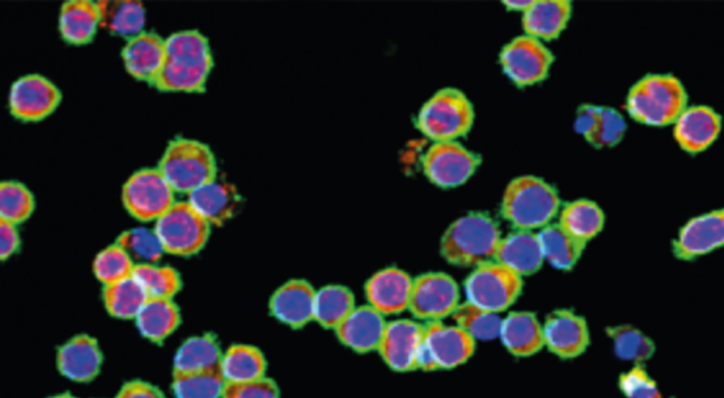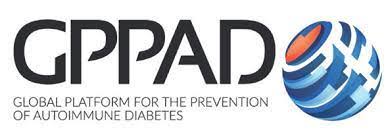Type 1 Diabetes – Prevention of Autoimmune Disease
Coordinators:
Carolin Daniel | Ezio Bonifacio | Anette-Gabriele Ziegler

In Germany about 370,000 people are affected by the autoimmune disease type 1 diabetes, in which the body's own immune cells perceive the insulin-producing beta cells as foreign and gradually destroy them.
The mechanisms underlying the development of type 1 diabetes are not yet well understood. However, the findings so far suggest that many different factors contribute to the pathogenesis. For example, it is assumed that certain changes in beta cells can promote the onset of type 1 diabetes and that the disease is ultimately caused by a variety of immune tolerance disorders and a defective immune activation. These factors are characterized by a high degree of heterogeneity, which is also illustrated by the different duration of progression to symptomatic type 1 diabetes.
The aim of the Type 1 Diabetes Academy is to better understand the underlying mechanisms of the disease and thus to develop therapies that target the immune system to correct immune deficiencies and prevent the destruction of beta cells in the pancreas.
Key areas of research:
- How do environmental risk factors affect the immune system and beta cells?
- Risk markers and type 1 diabetes endotypes
- Development of immune-modifying therapy strategies
An important research focus is the investigation of environmental factors that affect the immune system and pancreas and thus influence the risk of type 1 diabetes. For example, DZD researchers are investigating an association between past infections with coxsackieviruses and type 1 diabetes, for which tissue sections of human pancreas are a valuable research resource.
Identification of risk factors
Based on the heterogeneity of the disease and its course, a better understanding of the multiple risk factors and the investigation of possible subtypes of the disease are of great importance for the development of therapeutic approaches. Therefore, the Type 1 Diabetes Academy uses extensive studies to identify endotypes of the disease.

In autoimmune diseases such as type 1 diabetes, regulatory T cells (Tregs), which in healthy people play a decisive role in preventing excessive immune reactions, are impaired in their function. One research focus of the Type 1 Diabetes Academy is the investigation of the molecular bases that contribute to these impairments, which affect the induction, stability and function of Tregs. In this context, several relevant signaling pathways have already been identified and, based on this, the first promising therapeutic approaches have been developed.
In the context of the current Covid-19 pandemic, the resources of the Type 1 Diabetes Academy are also being used beyond its actual field of research in order to meet this global challenge collectively and as effectively as possible. Among other things, established type 1 diabetes studies are used to gain valuable insights for Covid-19 research.
Publikationen
An Age-Related Exponential Decline in the Risk of Multiple Islet Autoantibody Seroconversion During Childhood. Diabetes Care (2021), DOI: 10.2337/dc20-2122
Ketoacidosis in Children and Adolescents With Newly Diagnosed Type 1 Diabetes During the COVID-19 Pandemic in Germany. JAMA (2020), DOI: 101001/JAMA.2020.13445
Yield of a public health screening of children for islet autoantibodies in Bavaria, Germany. JAMA (2020), DOI: 10.1001/jama.2019.21565
Leader β cells coordinate Ca2+ dynamics across pancreatic islets in vivo. Nature Metabolism (2019), DOI: 10.1038/s42255-019-0075-2
miRNA143-3p targets Tet2 and impairs Treg differentiation and stability in models of type 1 diabetes. Nature Communications (2019), DOI: 10.1038/s41467-019-13587-3
Age, HLA, and Sex Define a Marked Risk of Organ-Specific Autoimmunity in First-Degree Relatives of Patients With Type 1 Diabetes. Diabetes Care (2019), DOI: 10.2337/dc19-0315
Prof. Dr. Anette-Gabriele Ziegler, Head DZD Academy Type 1 Diabetes
Here is a video deposited in Vimeo. With your consent, a connection to Vimeo is established. Vimeo may also use cookies. For more information, click here: Vimeo Privacy Policy.
Talk at the 10th anniversary celebration of the DZD on June 24, 2019 in Berlin (in English).
Members of the Academy
Peter Achenbach, HMGU
Ezio Bonifacio, PLID
Carolin Daniel, HMGU
Reinhard Holl, Ulm
Sandra Hummel, HMGU
Karsten Kretschmer, PLID
Nikolay Ninov, PLID
Teresa Rodriguez-Calvo, HMGU
Michele Solimena, PLID
Stephan Speier, PLID
Anna Stahl-Pehe, DDZ
Anette-Gabriele Ziegler, HMGU
GPPAD
The Global Platform for the Prevention of Autoimmune Diabetes (GPPAD) brings together several academic research institutions and hospitals in Europe. GPPAD aims to establish an international infrastructure for studies dedicated to preventing the development of type 1 diabetes. All GPPAD studies are led by the DZD partner Helmholtz Zentrum München.

